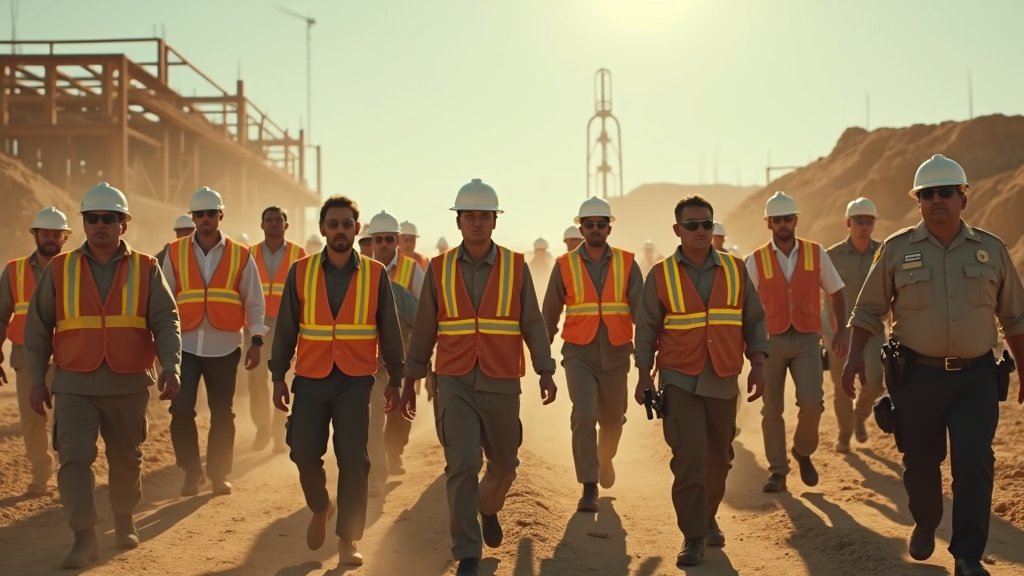Los Angeles Mayor Karen Bass recently addressed significant issues impacting the city, simultaneously championing economic incentives vital to its core industries while strongly condemning a legal challenge initiated by the Trump administration. Mayor Bass highlighted the positive implications of a substantial $750 million Hollywood tax credit program, positioning it as a crucial tool for fostering local economic growth and preserving jobs within the entertainment sector. This commendation came as she also publicly criticized a lawsuit filed directly against her by the previous federal administration.
Praising Economic Catalysts: The $750 Million Film Tax Credit
Mayor Bass’s vocal support for the $750 million Hollywood tax credit underscores its perceived importance to the economic vitality of Los Angeles. The entertainment industry is a cornerstone of the city’s identity and economy, providing a vast array of jobs from highly-paid artists and technicians to support staff and auxiliary services. Tax credit programs are designed to incentivize film and television production companies to choose California, and specifically Los Angeles, as their filming location rather than states or countries offering more competitive financial packages.
The $750 million figure represents a significant investment aimed at keeping productions, and the accompanying jobs and revenue, within the state. Proponents argue that for every dollar invested through these credits, there is a significant return in economic activity, including spending on local businesses, crew wages, and infrastructure. Mayor Bass’s praise indicates her administration’s belief that this specific credit is effectively serving its purpose, helping to combat the phenomenon of “runaway production” where projects relocate to jurisdictions with lower costs or stronger incentives. Her focus on this credit aligns with a broader strategy to bolster key sectors of the Los Angeles economy and ensure the city remains the global capital of entertainment production.
Navigating Legal Challenges: The Trump Administration Lawsuit
Alongside her emphasis on economic development, Mayor Bass directly addressed a lawsuit filed against her by the Trump administration. The existence of such a lawsuit, stemming from a previous federal administration, introduces a layer of political and legal complexity into the city’s operational landscape. While the specific subject matter of the lawsuit was not detailed in the available information, the context surrounding the announcement strongly suggests that it is related to policies enacted or upheld by the city of Los Angeles.
Lawsuits between federal administrations (even former ones) and city governments often revolve around contentious policy areas where federal and local jurisdictions or priorities clash. Historically, this has included issues such as immigration enforcement, environmental regulations, or interpretations of federal mandates and funding conditions. Given the political climate during the Trump administration, disputes over so-called “sanctuary city” policies – which limit local cooperation with federal immigration authorities – were a frequent source of tension and legal action between the federal government and numerous municipalities across the United States, including cities in California.
While the precise policy at the heart of this specific lawsuit against Mayor Bass remains publicly unspecified based on the provided details, its origin with the Trump administration and its focus on city policies points towards a potentially ideologically charged legal challenge. Such lawsuits can consume significant city resources, including legal fees and staff time, diverting focus from other pressing urban issues.
A Forceful Response: Denouncing the Lawsuit as an “All Out Assault”
Mayor Bass did not mince words in her reaction to the legal challenge. She characterized the lawsuit as part of an “all out assault” on the city of Los Angeles. This strong language frames the legal action not merely as a technical disagreement or a standard legal procedure, but as a fundamental attack on the city itself, its autonomy, and potentially its values or its residents.
Referring to the lawsuit as an “all out assault” is a potent rhetorical device. It elevates the dispute beyond a typical court case, portraying it instead as part of a broader, potentially politically motivated campaign against the city. This framing can serve to rally support from constituents and position the mayor as a defender of Los Angeles against external pressures or perceived attacks. It suggests a belief that the lawsuit is not aimed at correcting a specific legal technicality but is instead part of a larger effort to undermine the city’s governance or its policy choices on a more fundamental level.
This kind of language highlights the sometimes tense relationship that can exist between federal and local governments, particularly when they are led by different political parties or ideologies. It reflects the high stakes involved when federal authority intersects with municipal self-governance and the right of cities to set their own policies based on local needs and priorities.
Balancing Priorities: Economy and Autonomy
The juxtaposition of Mayor Bass praising a significant economic initiative while simultaneously criticizing a federal lawsuit underscores the complex and multi-faceted role of a major city mayor. Leadership involves not only promoting growth and prosperity through programs like tax credits but also defending the city’s interests and policy positions against legal or political challenges.
The $750 million film tax credit represents a proactive effort to shape Los Angeles’s economic future by supporting a foundational industry. The lawsuit, conversely, represents a challenge that must be reacted to and defended against, absorbing resources and demanding a robust legal and political response. Mayor Bass’s public statements link these distinct issues through the lens of her administration’s overall commitment to the well-being and defense of Los Angeles – economically, socially, and politically.
As the situation unfolds, particularly concerning the specifics of the Trump administration lawsuit, further details will clarify the precise nature of the legal dispute and its potential implications for city policies. For now, Mayor Bass has clearly articulated her administration’s dual focus: fostering crucial economic engines like the film industry while standing firm against what she views as an unwarranted “assault” on the city she leads.





